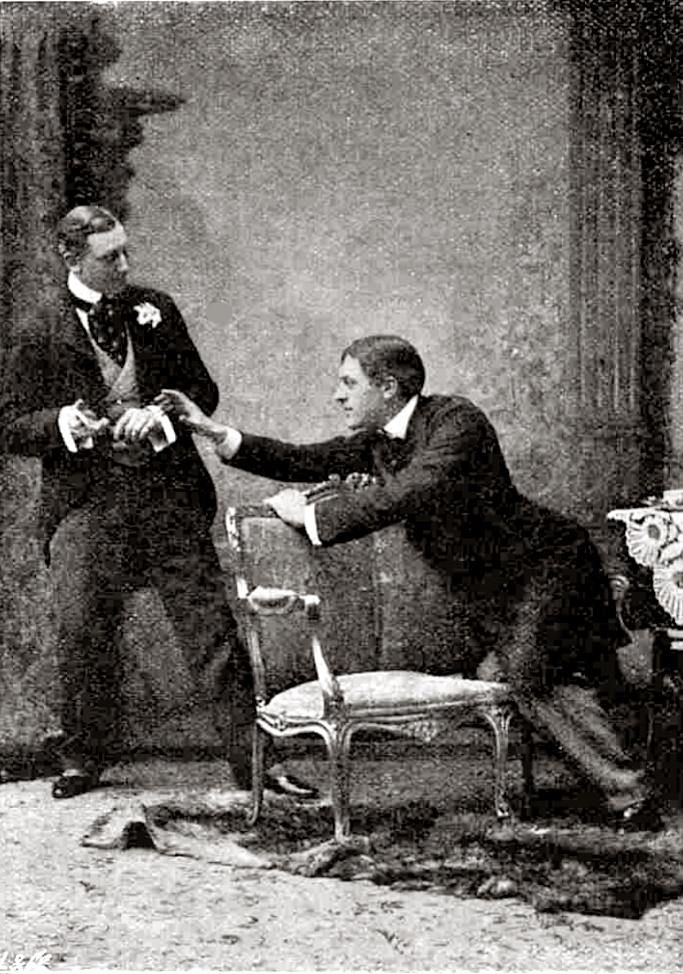The question looms large when we look at much of public life in recent years. Scandal after scandal has dominated the front pages, from phone hacking to MPs being less than transparent about their expenses, and each time a familiar refrain is sounded: what happened to the notion of behaving ethically?
My preoccupation with questions of ethics has led to me doing something I never thought I'd do - writing a book. It's called The Importance of Being Ethical, and it'll be published in a couple of months.
All is not what it seems
The title is an allusion to the great Oscar Wilde play, The Importance of Being Earnest, which satirises Victorian notions of respectability and duty. To recap, the plot concerns of the love of Gwendolen Fairfax for Ernest - the alter ego of Jack Worthing, who was found in a handbag in the cloakroom of a London railway station by a Mr Thomas Cardew. Despite Jack's inauspicious start in life, he grows up among the landed gentry and is known as a pillar of the community in Hertfordshire, where he has a country estate. He finds his everyday life stultifying, and to escape it engineers a remarkable ruse: a disreputable brother called Ernest, his alter ego. He is always having to save Ernest from some calamity or other but Ernest, of course, does not exist.
Jack is a hypocrite, a man at ease with his deception. He wants to be perceived as upright and respectable, and has no qualms about his double identity. Gwendolen is no less preoccupied by the veneer of appearances. Obsessed with finding a husband whose name is Ernest - the name "inspires absolute confidence", says Gwendolen - she is unable to see through the deceit of Jack/Ernest.
The quality of being 'earnest' is uppermost in Wilde's mind. For him, being earnest meant inhabiting a world of false truths, smugness and complacency, a world in which so long as things appear to be alright, then they must be alright. Hence the play's most famous quote, uttered by the snobbish Lady Bracknell to Jack/Ernest: "To lose one parent, Mr Worthing, may be regarded as misfortune; to lose both looks like carelessness."
The play's denouement reveals that appearances are not to be relied upon; that to probe beneath the surface is to find a different story and, in fact, the truth.
Classic Wilde
The play is classic Wilde, in that his works are as paradoxical as they are amusing. As well as this, it seems to me to be as relevant today as it was when it was first performed over 100 years ago, on 14 February 1895 at St James's Theatre in London. Wilde still manages to shine a light on the hypocrisy which has come to permeate so many sectors of society.
So, in my book, I examine ethical dissonance in sport, popular entertainment, public service, the world of business, and, finally (by way of a topic particularly close to my heart), the personal injury sector. Time and again, in these arenas, it seems that appearances disguise a worrying, not say downright unpleasant reality. So long as everything seems to be OK, we ignore standards of professionalism and ethical rigour. But if we strip away the veneer, we find Jack Worthing, and Gwendolen Fairfax, to be alive and well.
The Importance of Being Ethical is a call to arms for those who believe in sound ethical principles and professionalism, in the concept of putting duty before profit, and for those who, like Jack Worthing, may prove to be Ernest after all. I hope that it will have resonance for anyone who cares about British public - especially those who believe that it is, after all, important to be ethical.
(And lastly, lest I set myself up for a charge of being less than transparent, the book has been co-written with a professional writer. More soon.)

No comments:
Post a Comment